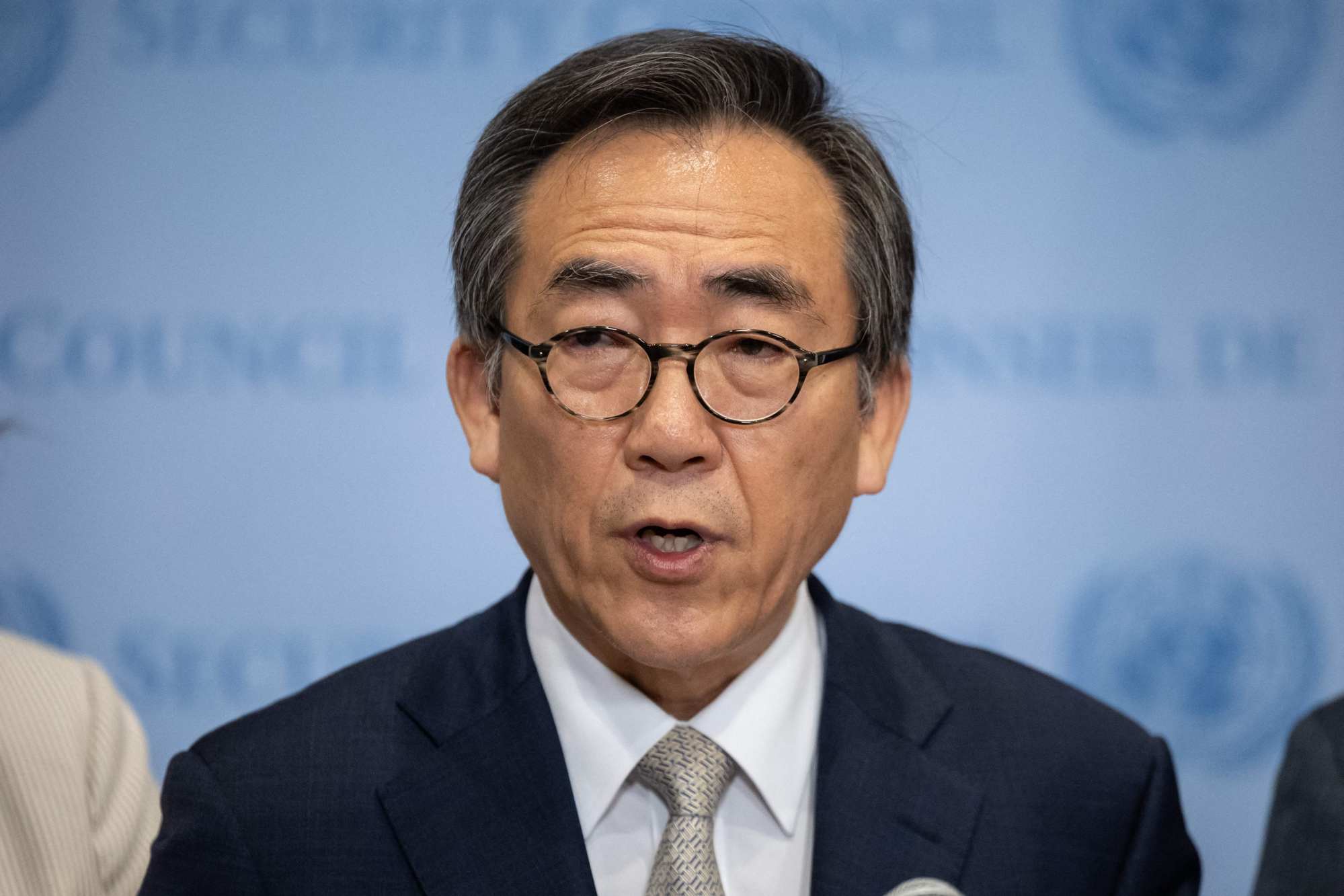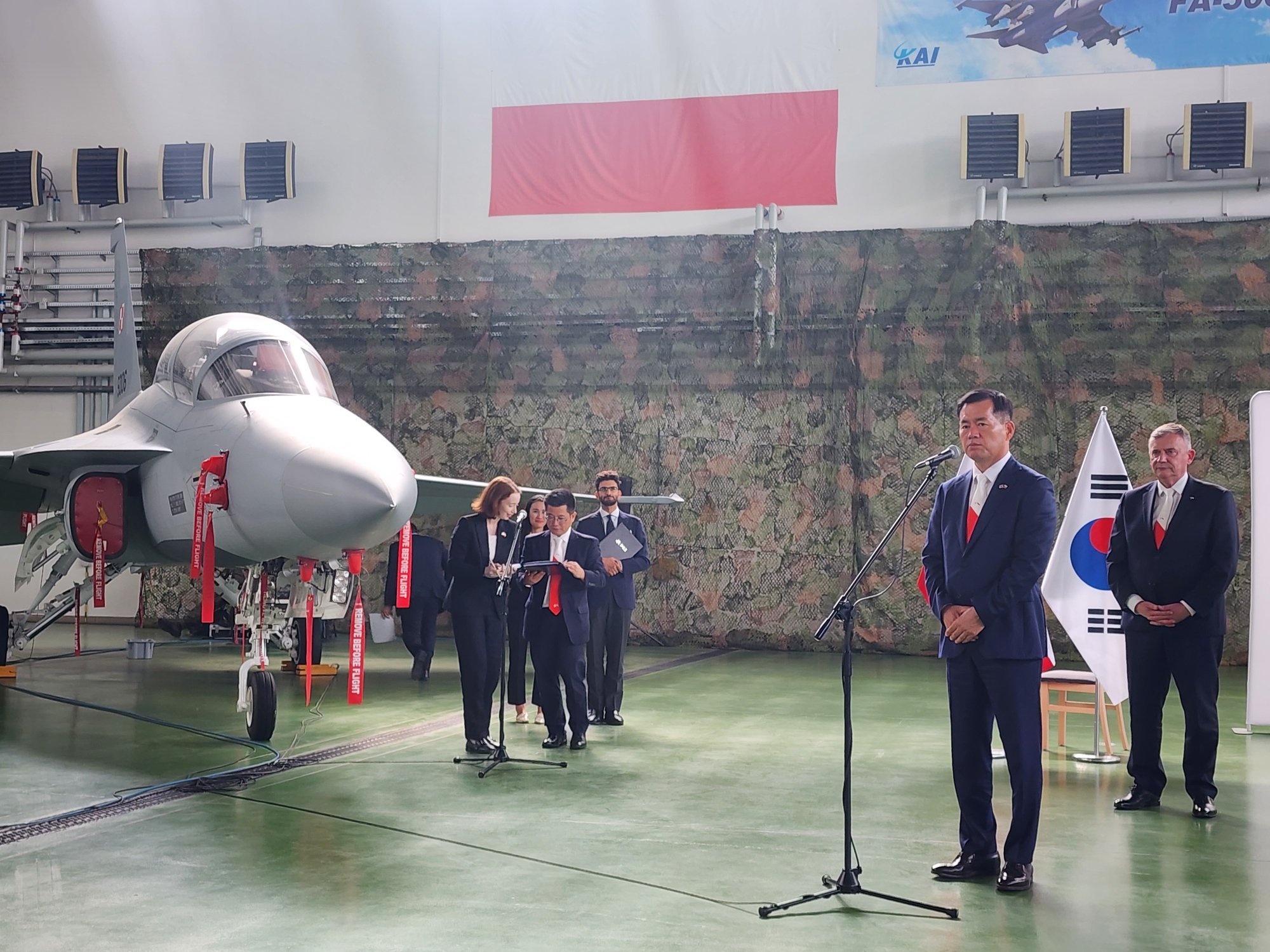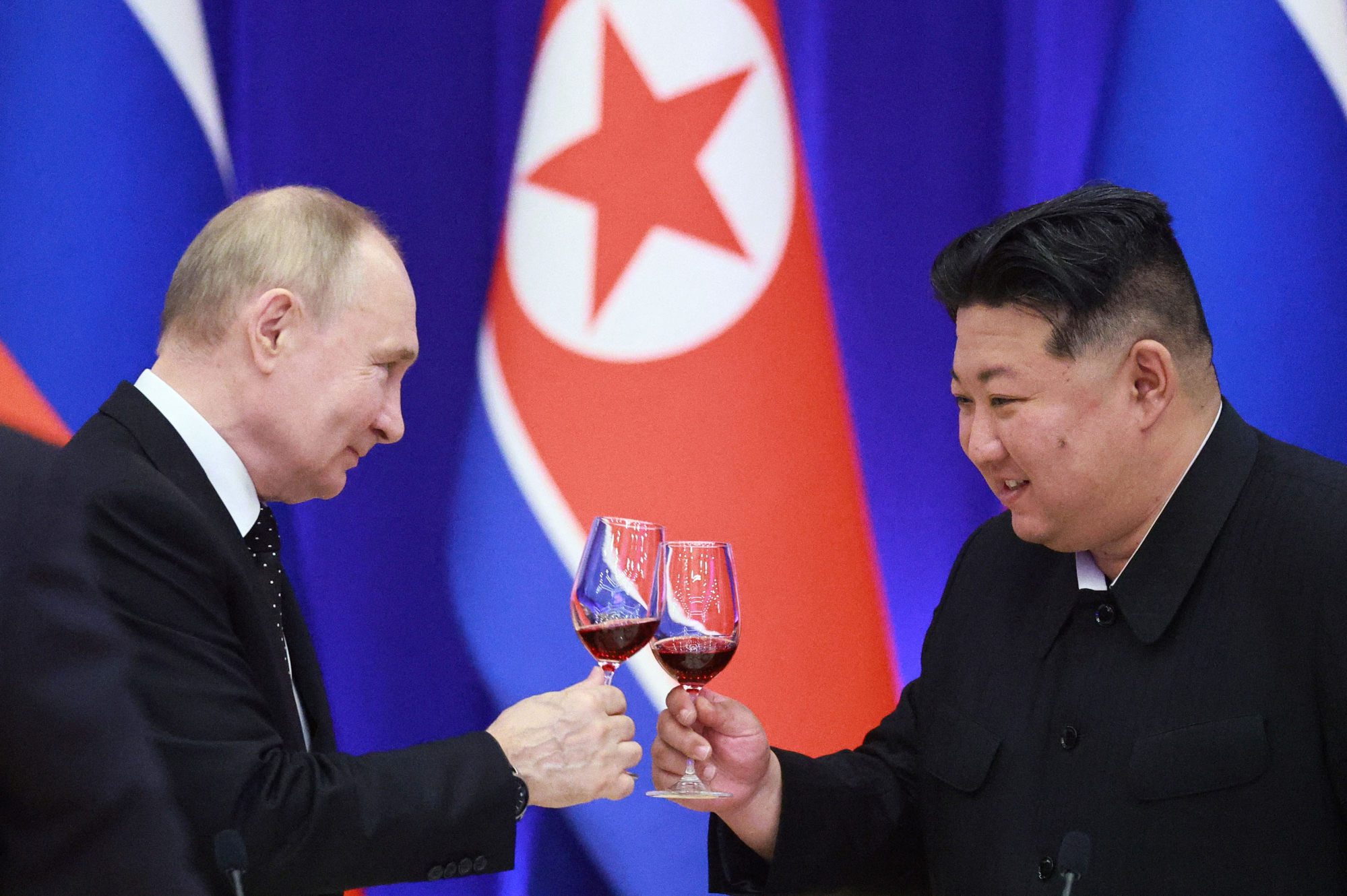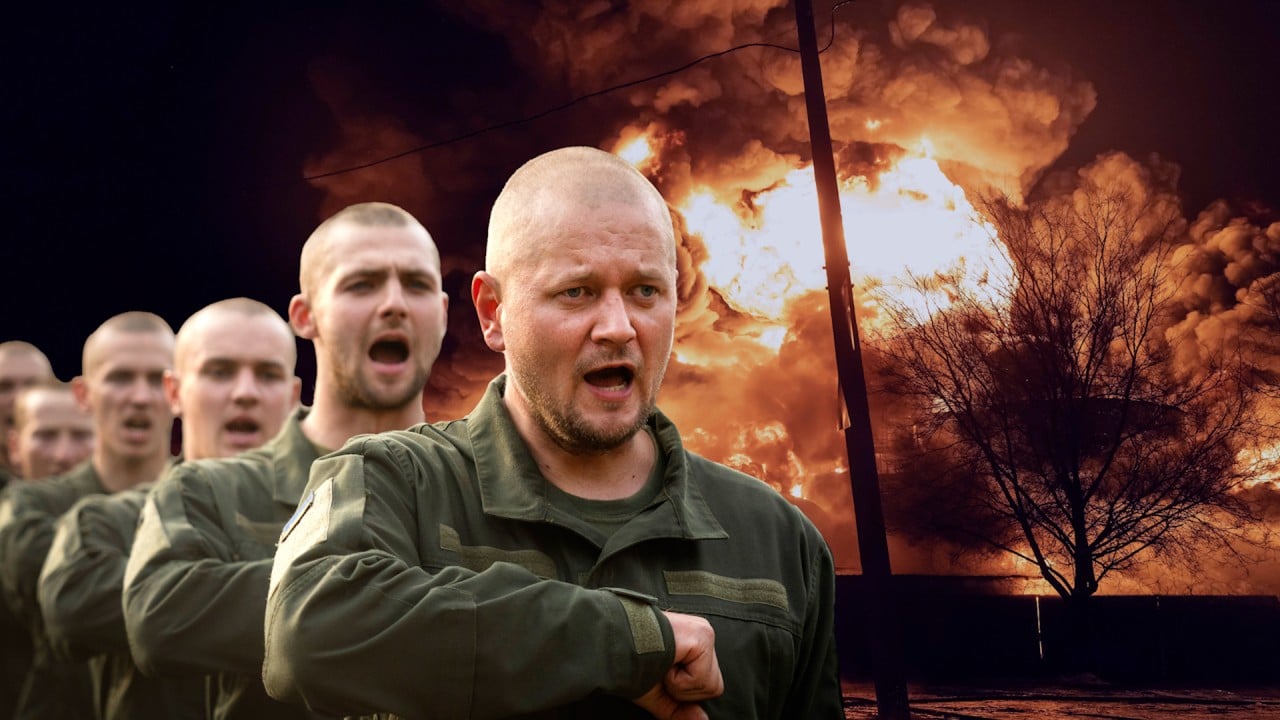South Korea calls Russia ‘strategic partner’ in bid to maintain ties amid Ukraine tensions
“The South Korean government should also protect Koreans’ lives and businesses in Russia and, for this reason, communication at a necessary level with Moscow is absolutely required.”
However, the foreign minister noted that it would be impossible to restore bilateral ties to pre-war levels “as long as the war in Ukraine rages and Russo-North Korean military cooperation continues”.

“If there are actions that undermine our core security interests, we would respond with stern countermeasures”, Cho said. “We’ll manage the situation properly, closely monitoring Russia’s behaviour.”
He called for cooperation between South Korea and Nato to “thoroughly block” the threats.
Ties between Moscow and Seoul have also been strained by South Korea’s significant financial commitments to aiding Ukraine.
Seoul provided US$100 million in humanitarian aid to Kyiv in 2022. It pledged an additional US$150 million in short-term aid in 2023 and US$300 million earlier this year, as well as US$2 billion in long-term, low-interest loans via the Economic Development Cooperation Fund beginning in 2025.
However, Seoul stopped short of making a commitment to directly supply Ukraine with its much sought-after lethal weapons, including artillery shells, despite efforts by Nato Secretary General Jens Stoltenberg, who told Yoon in a meeting that security in the Indo-Pacific was “closely intertwined” with security in Europe.

Earlier this month, Yoon said Moscow must choose where its true interests lie between the two Koreas.
To this, Kremlin spokesman Dmitry Peskov said: “We disagree with this approach”.
“We support building good relations with both North Korea and South Korea, with all nations in the region,” Peskov said, adding it was “difficult to develop friendly relations with” countries that adopted hostile policies towards Russia.
Chang Yong-seok, a senior researcher at the Institute for Peace and Unification Studies, said both Moscow and Seoul appeared reluctant to bring the war of words into the realm of actions.
Aside from a North Korean military training delegation’s visit to Russia earlier this month, Moscow had not taken any substantial steps to bolster the North’s security threats to the South, Chang said.
“This leaves time for diplomacy with Russia to work,” he told This Week in Asia.
Lee Ho-chul, a political-science professor at Incheon National University, said Seoul was sending a message to Moscow that it did not want to escalate tensions.
“Nato is remote from us as Russia is close to the Korean peninsula. Seoul is seeking to mend fences with Moscow and sending an indirect message to Moscow that it does not want to see their ties deteriorate further,” he said.
South Korea’s “unspoken” message to Moscow was that it would not supply lethal weapons to Ukraine, according to Park Won-gon, a political-science professor at Ewha Womans University.
As concerns mount over deepening Russo-North Korea military ties and an assertive China, US Deputy Secretary of State Kurt Campbell said last week that Washington wanted to “institutionalise” the grouping of four Indo-Pacific partners of Nato, also known as IP4.
“I think you’re going to see multifaceted efforts to make sure that we recognise and acknowledge that [South Korea] is increasingly important, not just a regional role, but a global role going forward,” he told Yonhap news agency.

Calling the treaty that arose from the Putin-Kim summit an “unwelcome” development, Campbell said the US was both “concerned and vigilant.”
“We’re determined to meet any challenge with a very robust response, and we are coordinating not only at the bilateral level, but trilaterally and increasingly with other countries in the Indo-Pacific,” he said. “I expect that will continue going forward.”
Kelly A. Grieco, a senior fellow at the Stimson Centre think tank, said Nato and China seemed locked into a classic security dilemma as the bloc’s rhetoric and expanding practical cooperation with the IP4, in response to China’s actions including its material backing of Russia’s war economy, appeared to be an escalatory threat to Beijing.
“At the same time, Nato increasingly [views] Beijing’s actions as actively undercutting the rules-based order, but it is unable or unwilling to acknowledge that its own policies … amount to a change of the status quo as well – and something that provokes Beijing to act more aggressively toward the alliance, its member countries, and IP4 partners,” she wrote on the Stimson Centre website on Friday.
